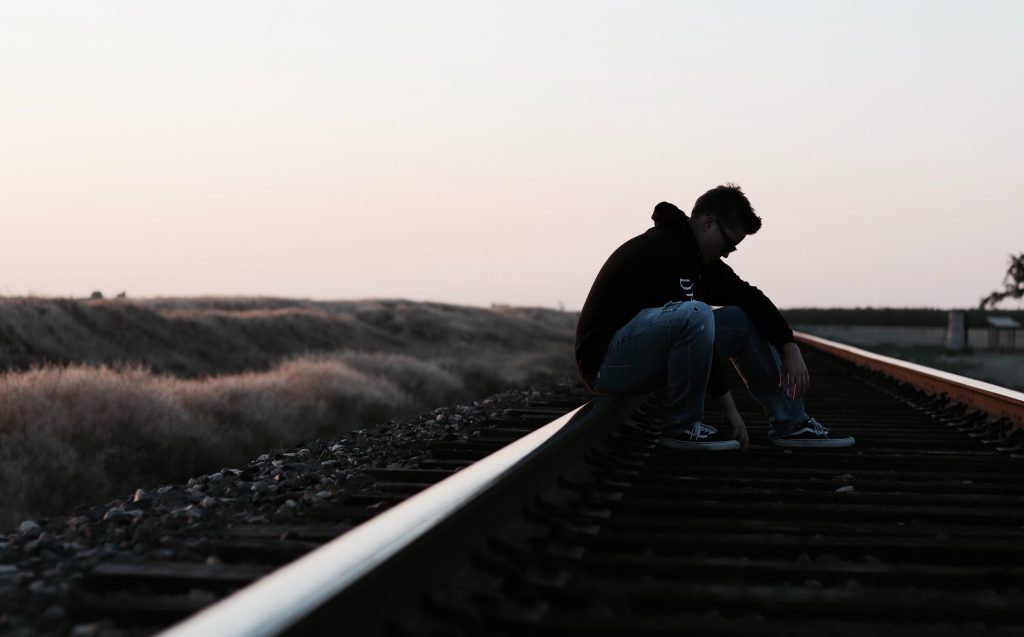
People who have survived various kinds of trauma often emerge with post traumatic stress disorder (PTSD). PTSD can make it more difficult to thrive within personal relationships, including those with spouses, partners, family members, friends, and even children. This can be true of people who’ve just begun to experience trauma and PTSD, or of longtime PTSD sufferers alike.
The symptoms of PTSD can hamper cooperative problem solving, effective communication, emotional closeness, responsible assertiveness, and trust. These problems can in turn cause partners without PTSD to react in certain ways, which affects the trauma survivor again, and a circular pattern arises that places the relationship in jeopardy. For these reasons, it’s important to be able to recognize the symptoms of PTSD—especially since not all sufferers are aware of the problem.
Symptoms and Progression of PTSD
As many as 7 or 8 of every 100 people in the U.S. will have PTSD at some point in their lives, and at any given time, about 3 percent of the American population is probably struggling with PTSD—and maybe more, since often people don’t like to seek help. There are unique features of PTSD for everyone, but there are also many common symptoms. Each of these frequently seen signs of PTSD can disrupt relationships.
In the initial months after experiencing a trauma, survivors often feel depressed, angry, tense, detached, or worried in their relationships. For most survivors, time helps them get back to normal with their relationships and achieve their former level of closeness. However, for about 5 to 10 percent of survivors, PTSD develops, and things aren’t the same.
As time goes on, these survivors can start to feel distant from even those who they were once closest to. This feeling of distance can be punctuated with feelings of numbness, almost as if their mind has shut off some of their emotions, which have become too much to handle. They sometimes show less interest in sexual intimacy and social activities. Survivors frequently feel jumpy, irritable, worried, on guard, and nervous, so it can feel impossible to achieve any kind of intimacy or even relax in a meaningful way.

PTSD sufferers often feel a heightened need to protect things that matter to them, especially their loved ones. This can make them seem angry, demanding, tense, or even frightening to outsiders. In addition, since anger management and impulse control can be problems for PTSD sufferers, the wrong combination of events can land them in a bad spot.
For most people, activities that mean being in a crowd, or traveling in cramped quarters—like on an airplane—may be annoying, but in the end is no big deal. However, for people with PTSD, these activities can feel problematic, if not impossible. This is often because these kinds of situations make the sufferer feel out of control, or they trigger memories of the trauma. When this happens, the reaction of someone with PTSD can be unpredictable, but extreme anxiety at a minimum is likely.
After surviving a trauma and developing PTSD, a person often has flashbacks or intrusive memories of the trauma. Even though the person knows the experience is “just” a flashback, it feels vivid and real. The person experiences the terror and feelings of helplessness all over again. For this reason, a PTSD sufferer will go to great lengths to avoid flashbacks and memories, and practically this can mean avoiding many different situations, including activities that the person used to enjoy.
If the sufferer has difficulty sleeping or experiences nightmares, both the trauma survivor and their partner will have a tough time getting enough rest. Sleeping in the same bed or room with another person is very difficult for many people with PTSD.
Trouble Areas for People with PTSD
Because trauma survivors often fight impulsive behavior and intense anger, close relationships can feel like minefields. We’ve all been in the position of reacting too quickly and snapping at a partner; for someone with PTSD this is a heightened risk. The “solution” they often choose is avoiding closeness and pushing loved ones away “for their own good.” They might also find fault with everything their friends and loved ones do, for the same reason. Drug and alcohol abuse is another refuge for sufferers.
Unfortunately, in some relationships, emotional abuse or even physical violence can happen. Remember, if it does, there is never any excuse for violent behavior. That said, PTSD sufferers will probably feel guilty about their loss of control and may accept that they have a problem if they are confronted by friends and family over their behavior. However, if you have been the target of abuse, don’t take chances and confront a trauma survivor yourself. Get to safety instead.
In some situations, survivors might become too dependent upon family members, their partners, their friends, or even therapists or healthcare providers. Trained healthcare workers and mental health professionals know how to cope and help cope with this, but if you’re a friend or family member, you might not. If a therapist or doctor is in the picture, let them know what’s going on, and seek out support from others so you’re not struggling on your own.
Partners, family members, and friends of people with PTSD often have a hard time coping with all of this. They might feel isolated, depressed, or hurt because they are unable to help the survivor get past the trauma, and they might not know where to turn. They might also feel controlled and tense and become distant or even angry with the person suffering from PTSD. Some survivors have a way of making the people around them feel like they too are living in a war zone.
Coping with PTSD in a Relationship
Coping with PTSD in a relationship isn’t easy, but there are ways to work toward happier, healthier relationships as you recover from traumatic events. People with PTSD can develop and sustain healthy relationships by working on the following things:
- Develop a network of personal support to assist in the coping process with PTSD and help build stronger relationships with friends and family
- Learn to share your feelings—even those that worry or scare you—openly and honestly, always with compassion and respect
Build communication, problem-solving, and connecting skills by interacting with others - Practice being creative, playing, relaxing and enjoying your time, both alone and with others
How can you get help doing these things? There is more than one way to get PTSD treatment. Find the options that work best for you, and try more than one treatment approach:
Anger management
Stress management
Assertiveness training
Couples counseling
Family counseling
Family education classes
Group therapy
One-on-one cognitive behavioral therapy
Relationships may seem risky if you’ve survived traumatic events, but connecting with others in healthy, sustainable ways is very important for people with PTSD. Everyone needs a support network, and even though making these kinds of connections can feel dangerous, social support is a tremendous protective factor for people with PTSD—not to mention those who’ve survived a trauma and are at risk for PTSD.
Strong relationships can help you offset some of your emotional burdens and relieve feelings of isolation and loneliness. As you work towards healthier relationships, you can also supplement your self-esteem, beating back feelings of guilt, anger, panic, and depression. In time, you may even be able to reach out to another trauma survivor and help them—an incredible feeling.




